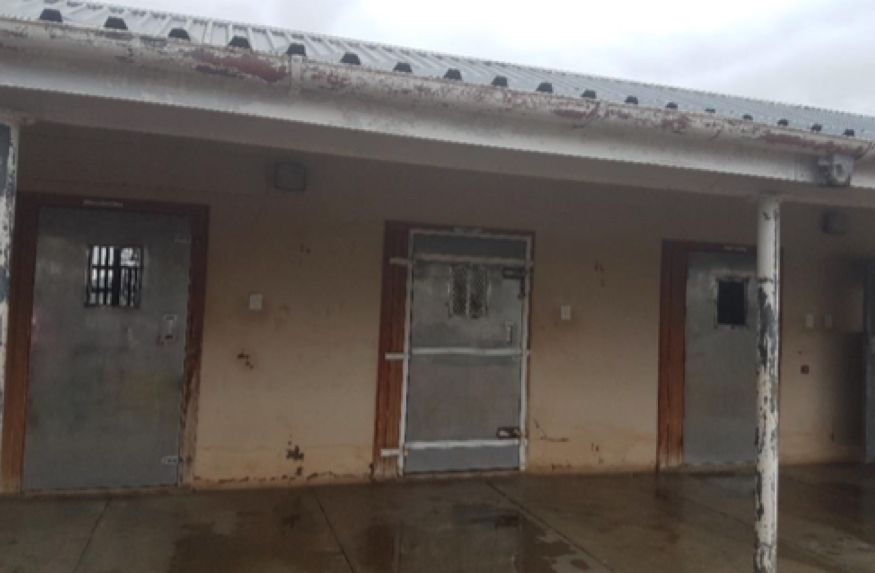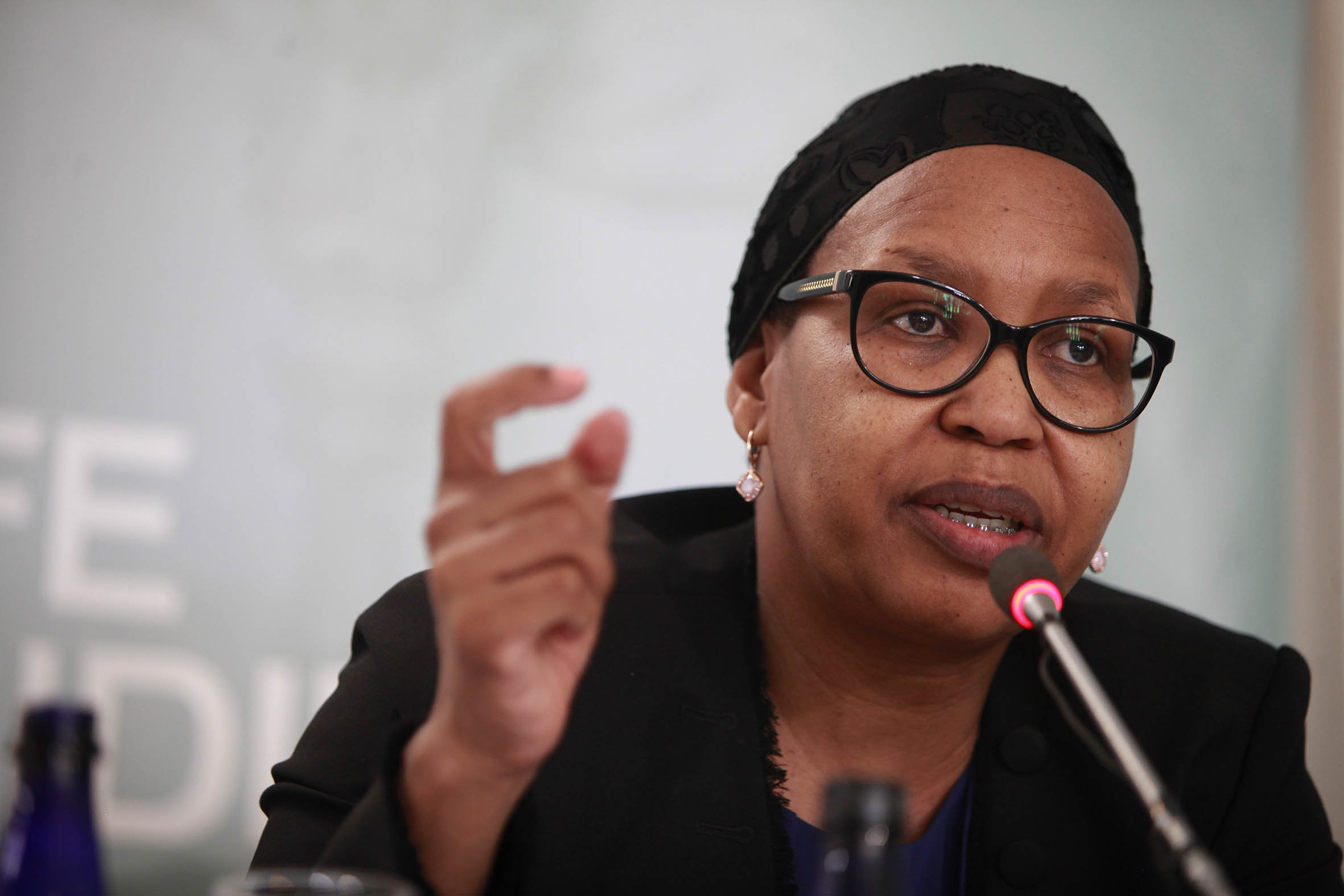Health ombud Malegapuru Makgoba reveals the Office of Health Standards Compliance's findings on alleged human rights abuses at an Eastern Cape mental health hospital. (Madelene Cronjé)
Health ombud Malegapuru Makgoba has slammed reports that 90 mental health patients died in the last eight years at the Eastern Cape’s Tower Psychiatric Hospital in a report released Thursday.
Makgoba investigated the allegations after a senior psychiatrist at the Fort Beaufort hospital, Kiren Sukeri, laid a formal complaint with his office about malpractice and human rights violations including a lack of food at the facility. Sukeri also took these accusations to the media.
But the ombud’s investigation found no evidence of degrading treatment at the 400-bed hospital. A team of investigators also revealed that Sukeri had inflated the death toll from 68 to 90. Under oath, Sukeri eventually admitted he had made a statistical error and has issued written apologies to both Makgoba and health minister Aaron Motsoaledi, the minister revealed. Calls to Sukeri’s private practice in Bedford, Eastern Cape for comment on Thursday went unanswered.
Makgoba also accused Sukeri of violating medical ethics by releasing details of the hospital’s death register to media outlets. Images of the log showing patient names and information were broadcasted nationally.
“There is no excuse for this violation”, Makgoba said.
Watch Makgoba deliver his findings to journalists
The psychiatrist’s allegations about Tower Hospital were widely used to argue that the Eastern Cape’s health department was headed for its own “Life Esidimeni crisis”, Makgoba explained. He was referencing a 2015 Gauteng health decision to relocate almost 1 700 mental health patients from state-funded private care into mostly unlicensed nonprofit organisations that held patients in deplorable conditions.
At least 144 Gauteng patients later died. The Life Esidimeni tragedy was Makgoba’s first case after Motsoaledi created an ombud and Office of Health Standards Compliance to monitor quality and safety within the healthcare system.
None of the post-mortems conducted on Tower Hospital patients linked deaths to human rights violations, the ombud reports states.
“This is no Life Esidimeni”, the ombud said.
Eastern Cape Health MEC Helen Sauls-August welcomed the report in a statement , commending whistleblowers who raised the issues at the facility.
“The report reveals our weaknesses and creates opportunities for us to jack up our systems”, Sauls-August said.
The hospital has already begun renovations to address some of the concerns raised by Sukeri, staff and the ombud regarding rooms used to separate violent patients for observation.

These were the rooms used to isolate psychiatric patients at Tower Hospital found a 2018 report by the South African Society of Psychiatrists (Sasop). Sasop visited the hospital alongside the Treatment Action Campaign following Sukeri’s allegations.
But at least one civil society organisation has publically criticised the ombud’s findings. The Rural Health Advocacy Project works with healthcare workers to enable them to speak out about problems in the health system. The organisation tweeted this following the report’s launch.
Sukeri has since resigned from Tower Hospital but continues to practice privately. In his report, Makgoba recommended that the Health Professions Council of South Africa (HPCSA) suspend his license while they investigate whether he should be allowed to continue to practice as a doctor.
“Even in private practice, he is still a danger to patients”, Makgoba said.
The ombud had harsh words for the psychiatrist, calling his conduct during the investigation “two-faced and evasive” and his competence as a doctor “questionable” after it was found that he had illegally discharged 51 patients from the hospital. One patient later died of suicide, another committed murder and yet another remains missing. Almost a dozen continued to struggle at home in a province where community mental health care services are virtually nonexistent, Makgoba said.
Makgoba said the complaint had however in part highlighted a systemic lack of mental healthcare in the province. He has given Motsoaledi 90 days to appoint a mental health administrator for the Eastern Cape.

In 2015, Gauteng health made a decision to relocate almost 1 700 mental health patients to mostly unlicensed nonprofit organisations — at least 144 patients later died. (Oupa Nkosi)
The minister admitted the public sector mental health care was inadequate. He detailed plans to contract an additional 51 private psychiatrists and 72 psychologists to slash assessment and treat backlogs at mental health institutions and possibly set up mental health wards at every hospital.
The ombud also asked that at least four media outlets issue a public apology for what he claimed was inaccurate coverage of Sukeri’s claims.
“I cannot think that it is ethical in a Constitutional democracy that the public continues to be educated based on unproven, unscientific fact.”
Journalists at the press conference argued their publications had already published corrections to reflect the correct death toll at the hospital. Others maintained the media coverage played a role in the closure of Tower Hospital’s outdated “seclusion rooms” and sparked an intervention into the province’s ailing mental health services.
But Makgoba remained unmoved: “The media as the fourth estate is important for democracy, but we can’t do with a media that peddles lies. No country will survive that.”